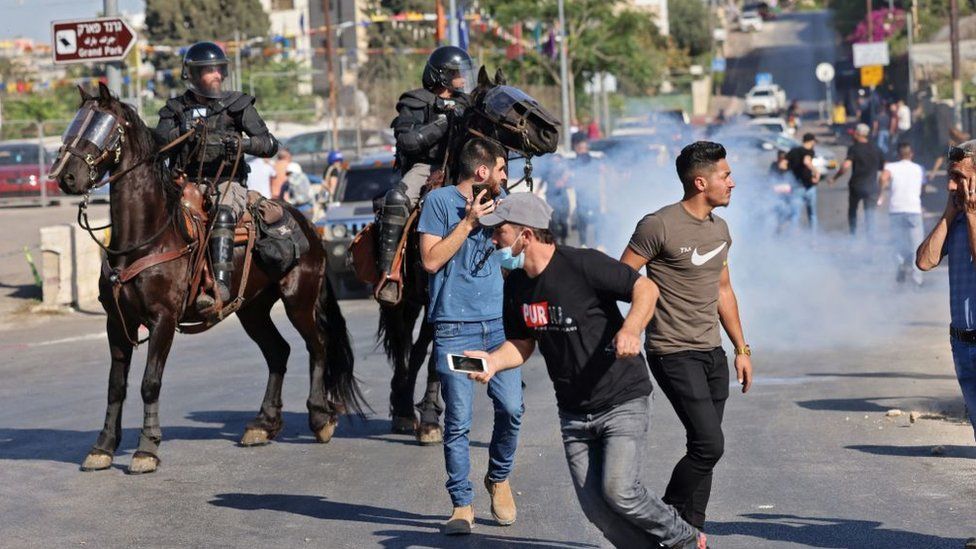ISRAELI and Palestinian sides say a top court’s proposal to end a bitter row over threatened Palestinian evictions in East Jerusalem is inadequate.
Judges suggested the Palestinians could stay in their homes in Sheikh Jarrah on condition they recognize the property belongs to a Jewish settlement company.
But the Palestinians said it ignores their own claims to the property, while the company said it was unworkable.
The years-long case has fuelled Israel-Palestinian tensions in recent months.
The threat of evictions stoked some of the worst violence between Israeli police and Palestinians in Jerusalem in years, culminating in an 11-day conflict with Gaza after its militant Hamas rulers fired rockets at the city in what it said was partly a response to Israeli “harassment” in Sheikh Jarrah.
But the Palestinians say they want recognition of their rights to the properties.
“They placed a lot of pressure on us to reach an agreement with the Israeli settlers in which we would be renting from the settler organisations,” said Muhammad el-Kurd, from one of the families involved.
“Of course this is rejected.”
The families’ lawyer rejected the Israeli claims to the property but said he hoped an agreement could still be found.
“The main aim of the Palestinian families is to maintain and secure their presence in their houses,” Sami Irshaid told .
“So if a resolution would come from the court, maybe not with a full declaration about the Palestinian rights, it can be something satisfactory for the Palestinian families.”
However Ilan Shemer, a lawyer for the Nahalat Shimon company which courts previously declared the owner of the land, also disapproved the plan.
“This arrangement will be an empty arrangement,” he said, accusing the Palestinian families of not complying with earlier rulings.
The court delayed a final decision in an effort to bridge those positions, with judges asking the Palestinians to present a list of potential protected tenants.
The case has become the focus of international attention and a rallying point for campaigners opposed to Israeli settlement activity.
The UN Secretary General’s spokesperson said his office was watching the court case closely. “What has always been our standpoint is that all settlement activities, including evictions, demolitions, are illegal under international law,” the spokesperson added.
Israel occupied East Jerusalem in the 1967 Middle East war and in effect annexed it later on. It does not regard the East as an occupied territory but rather views the whole of the city as its capital – a claim not recognised by most of the international community.
Israel says the issue of Sheikh Jarrah is not a matter for the state but a private property dispute subject to the decisions of the courts.
Monday’s hearing was the culmination of nearly 30 years of legal proceedings, which began when the land’s previous registered Jewish owners sought to evict the Palestinian residents for non-payment of rent.
The Palestinians claimed they were the rightful owners of the property, which they said had been guaranteed to them by Jordan when it settled the families thereafter it occupied the area in the Arab-Israel war of 1948.
The Palestinians’ claim was rejected by a Jerusalem court in 2020 and the eviction order was upheld.
Palestinians see the case as part of a wider move by Israeli settlers to take over Palestinian homes in East Jerusalem, which Palestinians claim as the capital of a hoped-for independent state.
In 2003, rights to the land where they live in Sheikh Jarrah were bought by Nahalat Shimon, which plans to develop the area for Jewish settlement.

